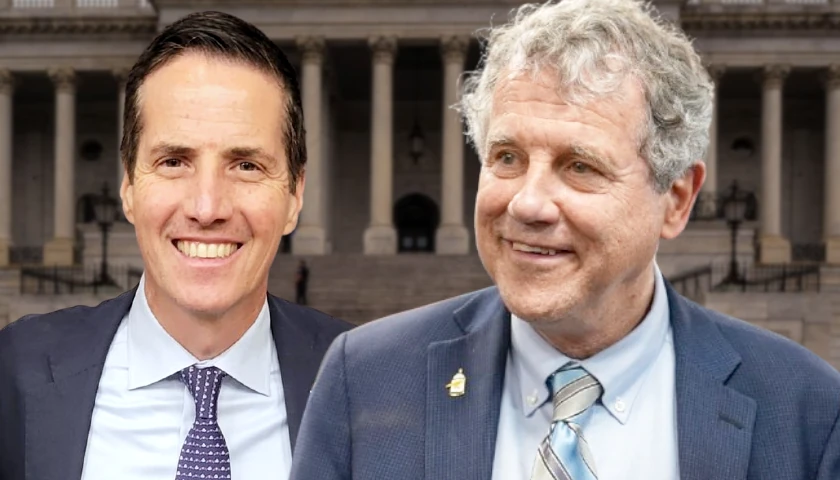COLUMBUS, Ohio – The Republican supermajority in the state House and Senate delivered a rare veto override Wednesday, one day after Governor DeWine vetoed a bill that gives Ohio lawmakers oversight of pandemic orders and rules.
Senate Bill 22 (SB22) gives the General Assembly the power to rescind orders and rules with a concurrent resolution (a simple majority vote of both the House and the Senate) instead of passing a law that requires the Governor’s approval.
Below is a simple list of what the new law does and doesn’t do.
Senate Bill 22 does:
- Terminates current state of emergency 30 days after bill goes into effect – unless the GA extends by concurrent resolution and prohibits the Governor from reissuing a state of emergency for 60 days unless approved by the General Assembly by concurrent resolution
- Subjects existing emergency declarations, orders and rules issued in response to a state of emergency by the executive branch, and certain rules and orders of the Ohio Department of Health (ODH) – or actions taken by the Director of ODH – to review by committee and rescission by the GA
- Limits emergency declarations to 90 days unless extended by the GA
- Allows the GA (by concurrent resolution) to rescind emergency declarations after 30 days. If the General Assembly does not extend a state of emergency or if the General Assembly terminates a state of emergency, the Governor cannot declare an identical or substantially similar state of emergency — or issue a declaration with any part of the initial declaration – for 60 days following the expiration or termination
- Allows the GA (by concurrent resolution) to rescind orders and agency rules immediately
- Allows for GA oversight of rules issued by all state agencies – not just ODH
- Allows for GA oversight of orders and rules of all statewide elected officials (Governor, Lt. Gov, Secretary of State, Auditor of State, Attorney General, Treasurer of State)– not just Governor
- Allows Ohioans contesting a pandemic rule, order or mandate issued in response to a public health state of emergency to do so where the person’s residence or business is located
- Allows for part of the law to be contested and ruled against without the remainder of the law being null and void – severability clause
- Establishes the Ohio Health Oversight and Advisory Committee (OHOAC) – three Senators (two from majority party, one from the minority) and three Representatives (two from majority party, one from minority)
- Allows the OHOAC to oversee the Governor, ODH and other State agencies by consulting and providing advice to the Governor and agencies regarding actions during a state of emergency
- Allows OHOAC to issue subpoenas to investigate and oversee actions of ODH under its authority to prevent the spread of infectious disease (ORC 3701.13) as well as the actions of the ODH Director in performing the duties of ORC 3701.14 – to investigate, make inquires and take prompt action to control and suppress the cause of disease
Senate Bill 22 does not:
- Go into effect immediately
- Cancel the existing state of emergency
- Cancel existing special or standing orders related to the pandemic
- Cause government emergency orders to expire after 30 days
- Stop the Governor from declaring a state of emergency, or preclude administrative departments or agencies from issuing rules and orders
- Allow local health departments to isolate someone who is not medically diagnosed with a disease or quarantine people who have not been in direct contact with someone who is medically diagnosed
- Allow the State of Ohio to shift jurisdiction of the law from one section of the law to another – as the state did when it began losing court cases last year under ORC 3701.13 and shifted to another section of the revised code for the ‘authority’ to sustain special pandemic rules and orders
- Allow a state employee or state agency to reissue any restriction contained in a rescinded special or standing order or rule
The bill is scheduled to be written into the law 90 days after passing – June 22.
– – –
Jack Windsor is the Statehouse Reporter at The Ohio Star. Windsor is also an independent investigative reporter. Follow Jack on Twitter. Email tips to [email protected].
Editor’s note: this article has been updated to clarify the points of SB22.





